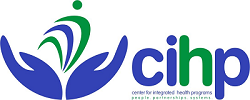
BRIDGES PLUS PROJECT
Bridging the Gaps and Enhancing Sustainability plus Leveraging Resources for Underserved States
FUNDER
Centers for Disease Control & Prevention (CDC)/ PEPFAR
PARTNERS
Federal, State, and Local Government entities of Nigeria, the private sector; community-and faith-based organizations, and traditional birth attendants
LOCATION
Benue | Gombe | Kaduna | Kogi | Akwa Ibom | Cross River
STATUS
Completed
DURATION
2011 – 2017
The story that needed to change…and a legacy of hope.
The story of HIV in Nigeria—from the first case recorded in 1986—would have been worse off without certain interventions to bridge the gaps in testing, prevention, care, and treatment.
Its prevalence had peaked at a national high of 5.8% against 1.8% in 1991, with the alarming statistics of women, children and key population being disproportionately affected.
As of 2011 (across a population of 160 million Nigerians), there were approximately 3.2 million People Living with HIV (PLHIV) and 2.4 million children orphaned by HIV/AIDS.
Extended through the weight of administrative architecture and dearth in human resources, an intervention-focused effort was required to ultimately achieve a significant decline in HIV spread.
Consequently, as part PEPFAR’s unique response to addressing the global HIV epidemic, contextually in Nigeria, CIHP (backed by the United States Government through Centers for Disease Control and Prevention-CDC) moved to bridge the gaps in ending HIV by reducing the incidence of HIV.
This became a paramount challenge: to provide and expand comprehensive, family-centered, quality-focused, sustainable services in HIV testing, prevention, care, treatment and administrative delivery.
First conceived as BRIDGES and later subsumed into BRIDGES PLUS to intensify high-impact service interventions, the project was generally implemented with innovative, cost-effective strategies through three (3) phases in five (5) years and across six (6) Nigerian States: Akwa Ibom, Benue, Cross River, Gombe, Kaduna and Kogi.
CIHP conducted high-impact service interventions to increase coverage of essential prevention and treatment interventions.
CIHP essentially scaled-up interventions to reduce sexual, biomedical, and mother-to-child transmission of HIV through;
· conducting HIV testing services, treatment, care and support for adults and children;
· managing of TB/HIV co-infection;
· providing young and adolescent wellness services, family planning/reproductive health services, and supportive services for vulnerable children.
As a lead implementing partner, we implemented the BRIDGES PLUS project with a consortium of partners to yield quality and equitable HIV services.
We essentially channeled our commitment to contribute to the efforts of the Government of Nigeria (GON) National HIV/AIDS Strategic Framework; the United States Government (USG) PEPFAR 3.0 Partnership Framework on HIV/AIDS and achieving the then UNAIDS 90-90-90 targets in a subset of prioritized Local Government Areas in Nigeria (PEPFAR/UNAIDS Mandate).
CIHP also aligned its strategies to the Global Health Initiative (GHI) Strategy and the Partnership Framework Implementation Plan (PFIP); PEPFAR/Global Fund to Fight AIDS and Tuberculosis and Malaria (GFATM) policy.
During this period, the ART program was redesigned and a new lexicon of SCALE-UP (PRIORITY) and SUSTAIN SUPPORT LGA was introduced by PEPFAR to achieve the PEPFAR/UNAIDS mandate.
Listen to Fulera’s Heartbeat as well as Emmanuel’s story to gain deeper insight into the level of impact the BRIDGES PLUS project achieved.
